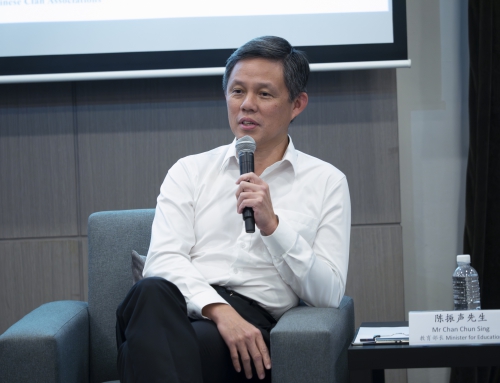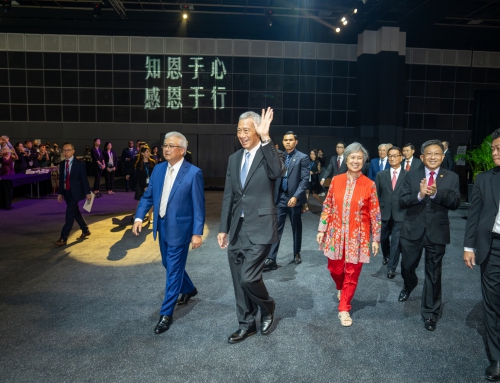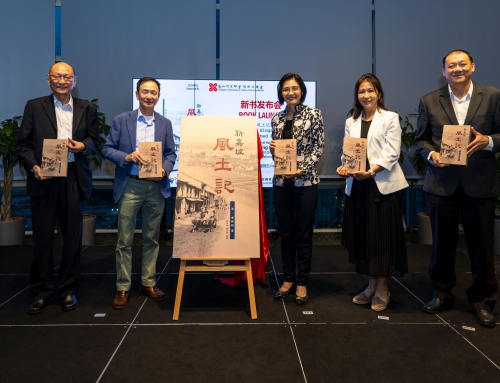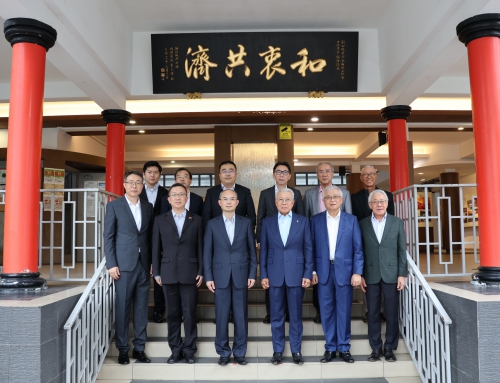Five-foot way, or “Gho Kha Ki” in local hokkien dialect, is an architectural heritage of Singapore. As a cultural symbol, Five-foot ways are commonly found in the Fujian region of China. This shows the close relation between Singaporean Chinese and their ancestral homes. Guest speaker for the theme “Is joining clan associations beneficial for youths?”, Associate professor Lai Yaqiao shared his reflections from attending the World Lai, Luo, Fu Convention in Quanzhou.
He said that he expanded his horizons during his interactions with Lai, Luo and Fu clan members from all over the world. As a Hakka, he experienced the Hokkien culture and the kinship fellow clan members provided him and drew connections between his own society with the local society and attained a deeper understanding of the culture and history of both places.
Using his personal experience as experience, Assoc Prof Lai talked about how he balanced his busy workload with clan association matters. He also talked about how he enriched his life by attending clan association events.
To promote understanding of clan associations and to forge stronger connections, the “Clan Youth Networking Session” was held at the SFCCA Building on 16th November 2008. Ying Fo Fui Kuan’s chairman, Associate Professor Lai Yaqiao was invited to give a lecture on the theme.
Organised by SFCCA’s Youth Committee, the lecture cum network session attracted nearly 80 participants from clan associations, Chinese Scholars and Students Association in Singapore (CSSA) as well as teacher representatives from schools. During the networking session, representatives shared their views on issues such as problems faced clan association youth organisations and how overseas students can integrate into local culture.
The two organisers from the Youth Committee were pleased with the outcome of the networking session and thanked the support from fellow Youth Committee members. They said that the success of the event would not have been possible without the teamwork and help from the Youth Committee.
SFCCA Youth Committee Chairman Mr Lee Wee Chung Charlie came from an English education background, he felt the inadequacy of his Chinese language in his working life and joined clan associations four years ago, led by his father.
In the interview, he said that clan associations are important avenues to promote traditional chinese culture. By joining clan association events, his Chinese language abilities improved. Through the clash of Chinese and English cultural values, he was also able to change his way of strategising and he benefited from this experience.
Mr Lee also said that he enjoys watching the show “Yi Zhongtian’s take on the three kingdoms” which furthered his understanding on Chinese history and cultural values. At the same time, he also learnt many life values from it.
Chinese educated SFCCA Youth Committee Vice-Chairman Mr Ng See Pein is regarded as a senior member of clan associations. He said that clan association provided him with warmth and love and an environment for him to learn from mistakes and grow.
In the years that he has served in clan associations, Mr Ng learnt about mutual respect and the power of cohesion in the face of adversity. Attending clan association events during his free time allowed him to feel the kinship from fellow clan members. It also served as a channel for cultural communication with other members. This has deepened his understanding on traditional culture, while also providing business opportunities for him.
As the Singapore government looks to attract more immigrants and encourage new immigrants to integrate with local society, inviting the Chinese overseas scholar allows these new immigrants to have a deeper understanding of local culture. To encourage more students into youth associations, the SFCCA Youth Committee has also invited schools teachers, hoping that this will help to establish a platform of communication with schools.
Both of them said that in the future, aside from visiting youth organisations from the various clans to forge stronger bonds, they will continue to invite overseas scholars and local students to future events.
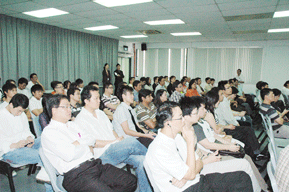
Taken from《宗乡简讯》(11/2008)

